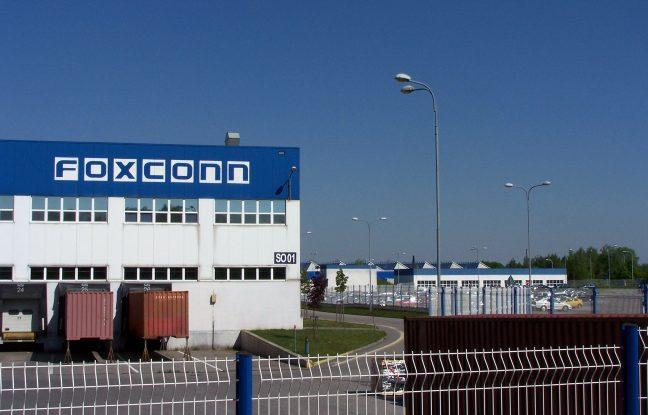After Foxconn Technology Group suggested a possible reconsideration of their Wisconsin deal in January, the tech giant confirmed they will build a $10 billion plant in Mount Pleasant.
Discussions between President Donald Trump and Foxconn chairman Terry Gou prompted the confirmation.
Foxconn planned to manufacture liquid-crystal display screens, but has since scaled back to manufacturing smaller screens, such as those on phones and laptops. The company aims to create 13,000 jobs for Wisconsin workers.
Rep. Melissa Sargent, D-Madison, said she is concerned about what would happen to the land and materials purchased by Racine County for the project if Foxconn retracts the deal. She was also concerned about the project’s environmental impacts and the people who have lost their homes.
In light of Foxconn suspension reports, here’s what you need to know
“It is vital that when we provide economic development and stimulus to businesses, that we do have a way to ensure that we are actually hiring Wisconsin workers,” Sargent said in reference to Foxconn potentially hiring foreign workers.
Jobs created so far include 178 full-time Foxconn employees and 854 employees involved in construction, Foxconn project director Claude Lois said in an email to The Badger Herald.
Rep. LaKeshia Myers, D-Milwaukee, said there was little public input when the agreement was made.
“People have been steadfast about losing their family property to Foxconn,” Myers said. “[Foxconn is] uprooting people’s whole lives that have been there.”
Job, promotion prospects for UW graduates look favorable for foreseeable future
Sargent said a lot of people in Wisconsin did not have faith in this deal to begin with.
According to a Marquette Law School poll, 40 percent of respondents said Wisconsin is paying more than the plant is worth.
“[Foxconn] wants to make it more so a research facility, then you have fewer jobs for a different class of worker,” Myers said. [Those jobs] would go more for white-collar professionals.”
The money that has been invested cannot be put into another company for the long term or on a larger scale, Myers said. Bidding more money to keep Foxconn in Wisconsin is also not an option.
‘Foxconn Days’ showcases new technologies, Smart Futures competition
Workers also need transportation to the plant, as there are some who reside in surrounding counties, Myers said. She asserted that developing or expanding the current transportation system to accommodate these workers is a necessary step.
“Transportation is an issue all over Wisconsin, especially in major urban areas,” Myers said.
According to a law that allows the Wisconsin Economic Development Corporation to provide $2.85 billion in state income tax credits to Foxconn, they can only receive them if they fulfill hiring and certain job requirements. If they receive tax credits but then fail to meet the requirements outlined in the Electronics and Information Technology Manufacturing Zone, they are required to pay them back within a year.
The WEDC can revoke Foxconn’s certification if they leave the zone and conduct business outside of it, or if they stop operations within two months. WEDC can revoke Foxconn’s claim to tax credits if they supply false or misleading information, according to Wisconsin statutory law.
Foxconn invests $100 million in UW research, announces partnership
The government can also issue bonds for infrastructure which are paid off by tax revenue. Bonds that may have been spent on Foxconn could not be returned if the deal closes. Investors can choose to sue Foxconn for damages if they close the deal, but it remains unclear if the money invested in Foxconn would be reallocated.
Foxconn is legally obligated to fully fund the land acquisition and infrastructure work, regardless of what they build, Lois said. It will be paid over a 10 year period, starting with a bill that will be issued in December 2019.
“We have tax dollars that are invested in this and our local levels of government have invested in this,” Sargent said. “Our tech schools have invested resources in it and other businesses have put time and resources into this as well, and if this doesn’t happen the way the people believe it [will] that money will have been spent.”
Sargent raised concerns about whether or not there are appropriate clawbacks put in place that would allow the state to recover financially if Foxconn closes the deal.
Murky waters: Foxconn deal brings economic opportunity, environmental concerns
Sargent is hopeful the change in the governor’s chair will provide a path forward that includes more voices. She pointed out that Evers and his staff are traveling Wisconsin and encouraging people to share their ideas about their concerns.
The advantages of the deal are unclear because the original contract was vague and Foxconn has made some changes to the original agreement. It was rushed, Myers said.
“[Foxconn has] to be upfront and let us know what the actual scope of their operation looks like,” Myers said. “If plans are going to change, they should have stakeholders from every part of the community involved in every part of each step.”














